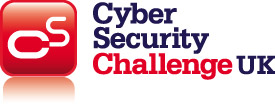The UK government has just published a draft Joint Parliamentary Committee report that may well effect bloggers like you and me. The bill is about defamation of character, but it includes some interesting points about blogging, and in particular anonymous posts. Although their aim is to lift the burden of policing blog comment from the service providers, it may have a knock on quasi censorship effect upon freedom of speech.
The ISP Review website contains all the links you need to read the proposal, and I should state that the draft is open for comment and contains specific questions that we should all maybe take time to think about and answer.
 The government want to protect people from slanderous remarks on blogs, as many people uses anonymity as a cover, feeling that they can say whatever they want without fear of reprise. The proposal is that any anonymous post that receives a complaint from any party must be removed immediately, or the name of the author made public, otherwise the blog owner will be held responsible and face the consequences of any libel case.
The government want to protect people from slanderous remarks on blogs, as many people uses anonymity as a cover, feeling that they can say whatever they want without fear of reprise. The proposal is that any anonymous post that receives a complaint from any party must be removed immediately, or the name of the author made public, otherwise the blog owner will be held responsible and face the consequences of any libel case.
All well and good if we are just talking about a few snide remarks or even a good and possibly unjustified slagging off, but what about other uses of anonymity? People use blogs to anonymously blow the whistle on malpractice in all types of situation. In this case anyone can make a complaint about an anonymous post and it must be removed. An arbitrator looks at the complaint, but as already noted, any libel remains the responsibility of the blog owner unless they are willing and able to provide the author’s name. The effect will be that any organization or individual will be able to block the comment in an instant, by making a complaint that we could read as a direct threat to the blog owners survival.
The new draft on libel is a prime example of the manipulation of responsibility. Do you make the providers responsible and threaten them with a law suit because they put something online that someone takes exception to? They are big organizations, faceless and have money. The blog owners do not however, and have a lot to lose.
So what about allowing your contributors to post anonymously? There is a need for anonymity in certain cases, people are much more likely to talk about sensitive issues if they do not have to reveal their names. There have been many cases brought to light that have turned out to be true examples of poor standards through anonymous posts.
How many blog owners will take the risk of going through a lengthy and expensive court case to defend the contents of an anonymous post? This is an option that in most cases I would think is not even feasible to contemplate.
To add just another thought, on occasion I have created a ‘false’ e mail account in order to register for a site that I did not want to have my real e mail address. I could have then used it to register with a website to get access to commenting, so it may well also be very difficult to determine who a named author actually is, further adding complications to already murky waters.

